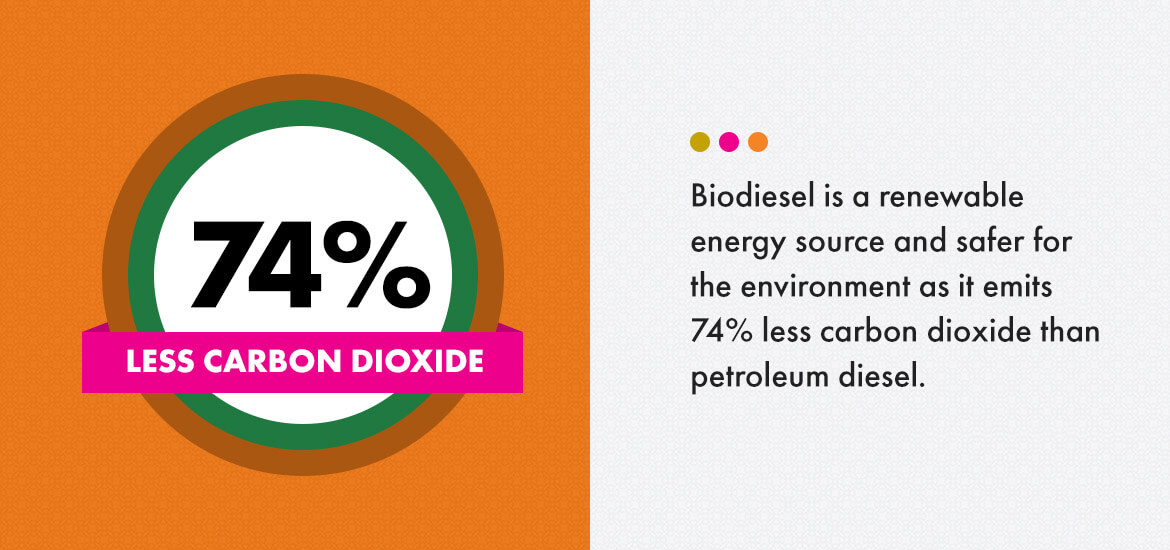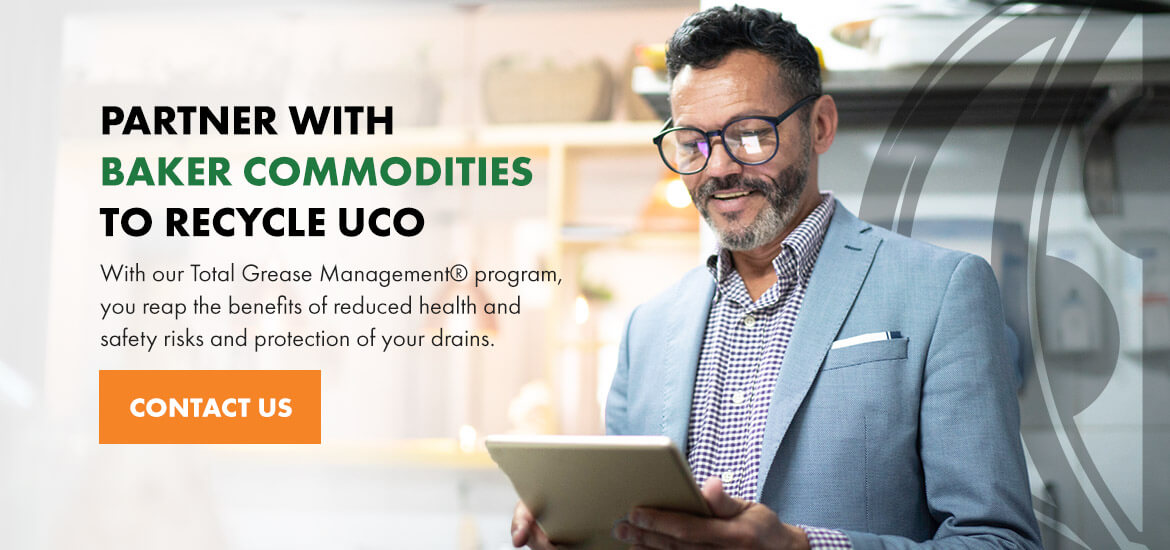How Technology Is Recycling Used Cooking Oil
In a time when environmental awareness is prominent, advanced technologies must play a part in used cooking oil (UCO) recycling. Restaurants, delis, hotels and other establishments that prepare and cook food have UCO as a byproduct. They must abide by regulations to recycle their oil and grease properly.
UCO and other byproducts make up a part of a large global industry. During the 2021/22 crop year, globally, the amount of vegetable oil produced exceeded 200 million metric tons, which has risen yearly. Appropriate management and recycling of UCO and animal by-products is essential to ensuring an environmentally sustainable economy.
Process of Recycling Used Cooking Oil
As a chef, manager or other hospitality professional, you have plenty of other things to consider, and worrying about a food oil recycling plan is worth outsourcing. Partnering with a commercial oil recycler is the first step in this process. They offer a range of specialized equipment for oil management.
You have various technology options for storage and collections, from traditional drum and barrel services to under-counter and automatic pumping systems. Once collected, the used cooking oil undergoes refining processes before being repurposed into products like biodiesel and high-energy animal feed products.
The process for used cooking oil recycling includes multiple steps following the collection from the restaurant, hotel or grocery store. Technological advancements have made processes simpler by adding automation to optimize efficiency. The three primary steps before cooking oil can be used as a repurposed ingredient are:
- Filtering
- Refining
- Purifying
How Does UCO Recycling Work?
How cooking oil is recycled starts with you choosing to partner with a leading grease removal company that offers your grease collection needs. This company helps ensure the proper recycling of yellow grease.
Yellow grease is UCO and other fats collected from commercial cooking operations and has inherent value that is steadily being realized by the public. Companies that offer grease and UCO collection employ constantly improving technologies in the recycling process.
After collecting the UCO and animal fats, trucks transport them to oil recycling centers, and they are placed in a waste oil centrifuge — a machine to process and refine them. The oil is heated to help to clean and filter it so that any remaining food particles are removed. The used oil centrifuge separates the solution into grease, water and any remaining solids.
Following the vigorous process in the used oil centrifuge, the oil may need to enter into another filtering system, a separator, to help separate the processed fats and oils from fine particles. This further refines the oil after the waste oil centrifuge and ensures that the quality and grade meet the specifications set out by the biofuel refineries if it is destined to become biodiesel.
Processing UCO to prepare it for biodiesel production is a prominent type of repurposing because it is highly cost-effective. Some used oil collectors will have their own processing plants, or they might prepare it to send to other global biodiesel processing plants. If the oil is not destined for biodiesel, it will go through a similar process and is ready for its intended purpose.
What Can Be Made From Recycled Grease?
Your used cooking oil can be a valuable ingredient in producing consumer products. Now that you know about turning previously unwanted byproducts into usable resources, consider some of the everyday sustainably recycled products made from UCO.
1. Biodiesel and Biofuel

Society is steadily looking for alternatives to petroleum and diesel, which still comprise 81.1% of world energy needs. Biodiesel is a renewable energy source and safer for the environment as it emits 74% less carbon dioxide than petroleum diesel. With the help of a grease removal provider, your UCO can contribute toward biofuel production.
2. Feeding Fats
Animal feed offers valuable dietary energy, and it’s one of the vital ingredients to ensuring healthy livestock whose meat may ultimately find its way to your kitchen. As feeding fats offer high-calorie value, producing quality feeding fats through environmentally friendly rendering and grease conversion is crucial.
3. Yellow Grease
Yellow grease is a versatile product you can use for lubrication in places where food safety is essential, such as food production facilities. It is also a component in animal feed and can be turned into biofuel.
Other Uses For Recycled Grease
When considering how cooking oil is recycled, it is interesting to think of all the possible uses for the new resource. There are plenty of things you could make from recycled grease, most of which stem from yellow grease and its components:
- Makeup
- Soaps
- Shampoo
- Moisturizers
- Paint
- Paint remover
- Detergents
- Furniture polish
- Leather preservatives
- Lamp oil
Why Recycling Used Cooking Oil Is Important
There are several benefits of recycling used cooking oil. Having your UCO removed helps keep your kitchen clean, and it is also an excellent way to reduce and repurpose what would have been waste. It allows you to help conserve resources and unite to create a sustainable future. Properly recycled UCO prevents contamination of the environment and more.
1. Maintaining Infrastructure
If cooking oil gets poured down your drains, after a while, it can build up and harden in the pipes. When this happens, the oil either clogs or even cracks the pipes. Apart from the damages, it is possible that this is against regulations and might lead to a fine or worse.
2. Lowering Plumbing Repair Costs
Using a recycling company gives you the added benefit of knowing oil won’t get into your plumbing system. Damages are averted, and you can save on these potential costs.
3. Maintaining Health and Safety
If disposed of improperly, UCO will likely cause structural damage and is a potential health risk. You want to prevent this for your staff, customers and the local community. If oil, grease and fats get trapped in the plumbing and the sewers, it may promote unwanted pathogens and harmful bacteria growth.
4. Following Local Regulation Compliance
Refraining from dumping your UCO down the drain saves your pipes and helps you comply with regulations. In certain counties, cooking oil disposal laws mean discarding the oil in this fashion is illegal. Noncompliance may lead to fines or worse. This is why contracting an oil removal company is your best course of action.
5. Supporting Renewable Energy
Due to innovative technology, grease collectors can turn waste oil into a renewable energy source. Biodiesel is a cleaner fuel source that powers vehicles and machines and even heats buildings. Delivery vans shipping food products to your kitchen may run on biofuels.
6. Supporting the Economy and Job Creation
Restaurants, delis, hotels, and members of the hospitality industry who partner with cooking oil collection and recycling companies help stimulate the economy. It leads to job creation for drivers, collectors and others involved.
Additionally, an entire industry revolves around recycling the UCO and transforming it into new products and materials. The reach goes even further and funds secondary fields such as technology, engineering, accounting and marketing.




